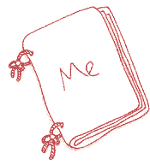Learning Activities for Preschoolers
Matching Sounds and Letters
Although children can be taught to match most letters with the sounds that they represent, be prepared to give them lots of help.
What You Need
- Pieces of paper
- Paper bag
What to Do
- Say some sounds for letters, such as /p/, /h/ and /t/ and have your child write the letter that matches the sound.
- As you read to your child, point out words that begin with the same letter as her name: Megan and morning, Liza and land, Sophie and save. Have her find other words that begin with that sound.
- Write letters on pieces of paper and put them in a paper bag. Have your child take a piece of paper from the bag and say the name of the letter and the sound that it represents. Then have him say a word that begins with that sound.
- Sit with your child and play "I Spy." Look around the room and say, "I spy something that starts with /s/. What is it?" If you like, add clues such as "We use it to cook our food." (stove) "It's where we wash the dishes." (sink)
Matching sounds with letters helps your child to learn that the letters he sees in written words represent the sounds he says in words. This is an important step in becoming a successful reader.
 My Book
My Book
Many preschoolers like to talk and have a lot to say. Although most can't yet write words themselves, they enjoy dictating stories for others to write for them.
What You Need
- Paper
- Paper punch
- Safety scissors
- Pencil, pen, crayons
- Yarn, pipe cleaners or staples
- Paste
What to Do
- Make a booklet of five or six pages. Your child can help punch holes close to one edge and thread yarn through the holes to keep the pages together. You can also bind the book with twisted pipe cleaners or you can staple the pages together.
- On the outside cover of the booklet, print your child's name. Explain to him that this is going to be a book about him.
- Let your child talk about what he will draw on each page. As he talks, print on the page what he says. Here are some examples:
- Other people in my family
- My favorite toys
- My favorite books
- My friends
- My pet
- My neighborhood
- My home (or My bedroom)
- Encourage your child to read his books to family members and visitors.
Making this bookwill help your child develop both spoken and written language skills and give him more practice using the small muscles in his hands.